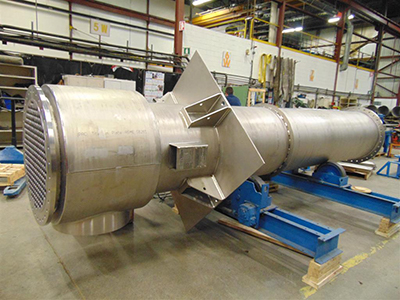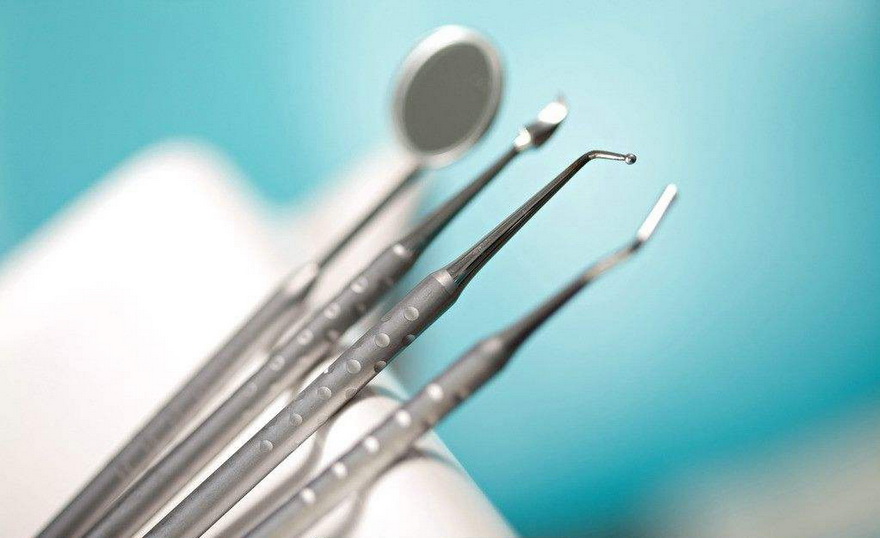Another hint, owing to its high corrosion resistance and good hard tissue compatibility this metal is also used for making medical transplants.I hope you have guessed the answer by now. Yes, we are talking about “Titanium”.Titanium is the ninth most abundant element in the earth’s crust. It forms around 0.63% of the earth’s crust.It was originally called manaccanite as it was discovered in a village named Manaccan located in the South Cornwall of the United Kingdom by William Gregor, in 1791.However, it was later independently discovered by German chemist Martin Heinrich Klaproth, in 1795. He named it Titanium, for the Titans of Greek mythology.Finally, titanium in its pure form was isolated by metallurgist Matthew Hunter of Schenectady, New York, in 1910. He continued with the name given by Klaproth.In the earth’s crust, it occurs within mineral deposits in combination with other elements. The two major mineral ores carrying titanium are rutile and ilmenite.On earth, most titanium is found in volcanic rocks. It also occurs naturally on the sun and stars, moon and meteors, in seawater, in plants, and in the human body.One of the significant characteristics of titanium is its extremely high strength-to-density ratio. It is 60% denser than and twice as strong as aluminum. Similarly, it is 45% lighter than steel but has almost the same strength.Titanium is a non-magnetic element and unlike other metals, it is not a good conductor of heat and electricity. However, when cooled below its critical temperature i.e. 0.49K, it behaves as a superconductor.does titanium conduct electricity?Isn’t this element amazing? So are you guys excited to know more about this fascinating metal?Well, we are equally excited to share the details. In this article, we will discuss everything you want to know about titanium.So, keep reading…
Properties of Titanium
Titanium is a transition metal element. It occurs in solid form at standard temperature and pressure.It is a very strong metal that has quite a low density. Like other metals, it is also ductile and lustrous. It is metallic-white in appearance. It has a very high melting point due to which it is used as a refractory metal.Titanium prepared for commercial purposes is around 99.2% pure. It has a very high tensile strength of around 434 MPa (63,000 psi) which is equal to low-grade steel alloys.However, when titanium is heated above 430 °C (i.e. 806 °F), it loses its strength. It is a dimorphic allotrope of the hexagonal α form and tends to change into a body-centered cubic β form at a temperature of about 882 °C.When exposed to air the outer layer of the metal oxidizes to form a non-porous passivation layer. It is a thin layer that protects the inner bulk metal from further oxidation.A few important properties of titanium are listed in the table given below.Now, that we have noted all the important properties of titanium we can move forward to discuss the important uses of this metal.
Uses of Titanium
Titanium is used for a wide range of purposes such as commercial, medical, industrial, etc. In this section, we will study different uses of titanium.
Commercial Uses
• Pigments and additives
Almost 95% of the total titanium produced across the globe is used in the manufacturing of titanium dioxide. TiO2 is a permanent pigment that is deep white. It is used in the preparation of paints, toothpaste, paper, and plastics.TiO2 is also used in making gemstones and cement, as well as an optical opacifier in paper. It also finds its use as a strengthening agent in making fishing rods and golf clubs that are composed of graphite.Titanium is a highly resistant metal due to which even the pigments made using TiO2 are chemically inert and do not fade in sunlight.The majority of household plastic products are made using chemicals that are brown or grayish in color. TiO2 imparts brilliant white color to these chemicals making them look more presentable and last longer.Paints containing titanium dioxide are more durable and capable of resisting severe environmental conditions.
• Coatings
The refractive index and extinction coefficient of titanium dioxide are 2.8736 and 0, respectively, at 632.8 nm. Also, the optical dispersion of TiO2 is higher than diamond. Due to these properties nanoparticles of TiO2 are used in making sunscreens.These small particles absorb UV light while allowing the visible light to pass through. Thus, they create a transparent barrier that protects the skin from harmful UV radiation from the sun.
• Aerospace and Marine
Titanium is well known for its corrosion resistance properties. It has a very high tensile strength to density ratio. It can resist temperatures as high as 1000 °F without creeping. Moreover, it has high fatigue and cracks resistance properties.All these properties make titanium an invaluable metal in the aerospace and marine industry. Titanium is used in the manufacturing of aircraft, naval ships, space crafts, armor plating, and missiles.In aircraft, it is especially used in making airframe structural components, air engine components, and aircraft hydraulic systems.Titanium alloyed with aluminum, iron, zirconium, molybdenum, nickel, manganese, and other metals is used in the aerospace industry owing to its greatly increased strength.Being resistant to salt water titanium is also used in manufacturing heat exchangers in desalination plants, propeller shafts, rigging, fishing line and leader, heater-chillers for saltwater aquariums, and divers’ knives.Titanium is also used in making surveillance and monitoring devices that are deployed in the ocean.
Industrial uses
• Petrochemical industry
Owing to its high corrosion resistance titanium is used in making pipes, heat exchangers, tanks, process vessels, valves, etc. for the chemical and petrochemical industry.Check out the article on does titanium rust.
• Pulp and paper industry
This industry uses certain corrosive media such as sodium hypochlorite or wet chlorine gas. Titanium being corrosion resistant is used in making process equipment for the pulp and paper industry.
• Glass industry
Titanium tetrachloride forms fumes in moist air due to which it is used to iridize glass. These glasses are used in making smoke screens.
• Automotive and Sports industry
Although titanium is very expensive for the general consumer market it is used in making automobiles, especially for motorcycle racing.It is also used in making high-quality sports equipment such as golf clubs, tennis rackets, lacrosse stick shafts, football helmet grills, etc. It is also used in making cycles for adventure cyclists and racing teams.
• Architectural industry
Titanium is an extremely durable, lightweight, and inert metal. Due to these properties, it is also used in manufacturing spectacle frames and equipment for backpackers such as cooking utensils, tent stakes, lanterns, etc.The titanium also finds its use in making horseshoes that are lighter and more durable in comparison to normal steel-made horseshoes.
• Jewelry
Due to its inert and non-allergic nature titanium is used in making jewelry. The titanium-made engagement rings are quite popular these days. Moreover, this jewelry does not corrode and is suitable to be worn in swimming pools or even in seawater.1% titanium alloyed with gold is as hard as 14 karat gold and as durable as 24 karat gold. In the market, this alloy is sold as 24 karat gold as the titanium composition is very low.Titanium is strong and dent-resistant and is also used in making frames for wrist watches. Some decorative objects and sculptures are also made using titanium.Titanium is also used in body piercing. A few specific medals and coins are also made using titanium.
Medical Uses
• Surgical implants
Titanium is a non-toxic inert metal that is biocompatible. This means that when titanium enters a body, it does not get rejected. Due to these properties titanium is used in making surgical implants such as dental implants, hip balls, sockets, etc.Usually, titanium alloyed with 4% or 6% aluminum and 4% vanadium is used for this purpose.As titanium is non-ferromagnetic, patients with titanium-made surgical implants can safely undergo Magnetic Resonance Imaging.
• Medical equipment
Titanium is used in making components of wheelchairs, crutches, and similar other medical equipment. It is also used in making surgical instruments for image-guided surgery.
• Nuclear waste disposal
Titanium being corrosion resistant and highly durable is used for making storage containers for nuclear waste products. Using the right technique it is possible to make containers that last for as long as 100,000 years.Articles you must also readUses of LithiumUses of GalliumUses of Dry IceUses of SiliconUses of BerylliumUses of NeonUses of ChlorineUses of Argon
Conclusion
Therefore, titanium can be used for a variety of purposes such as in paint manufacturing, aerospace and marine industry, petrochemical, pulp & paper, and glass industry. It is also used in making jewelry, surgical implants, and medical equipment as well as in making storage containers for nuclear waste disposal.





